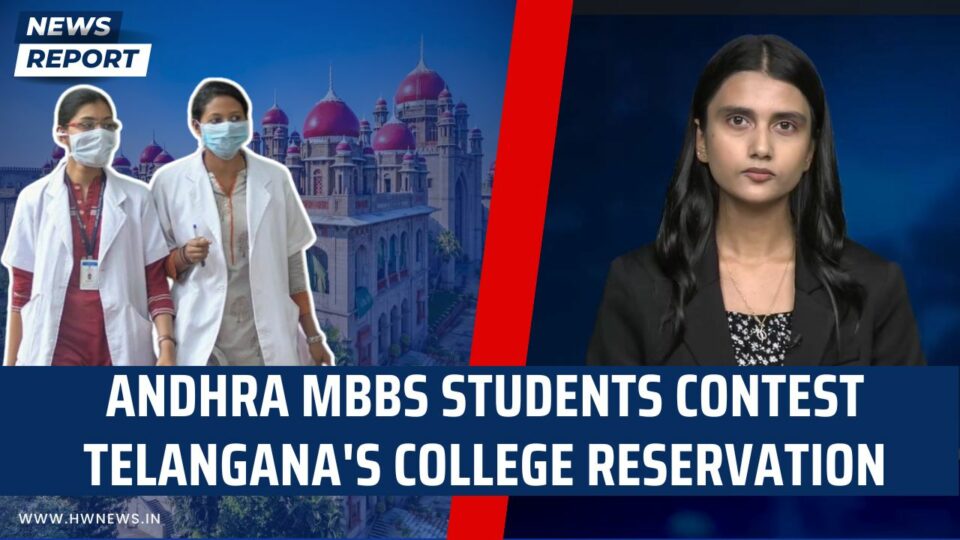A heated legal dispute has emerged in Telangana, India, over the state government’s decision to enforce a 100% reservation policy for local candidates applying to medical colleges established after June 2014. The policy has triggered a legal challenge in the Supreme Court by aspiring medical students from the neighboring state of Andhra Pradesh. At the heart of the conflict lies a debate over fundamental rights and the legality of this reservation policy. In a move to prioritize local medical aspirants, the Telangana government, via a directive on July 3, mandated that all seats designated under the competent authority quota in medical colleges established after Telangana’s formation be reserved exclusively for students domiciled within the state. This decision aimed to facilitate greater educational opportunities for Telangana students, aligning with the government’s objective of bolstering local healthcare services and medical education. To justify this move, the government pointed to the Andhra Pradesh Reorganization Act and Article 371D of the Constitution. The policy has been met with strong opposition from MBBS aspirants in Andhra Pradesh, prompting them to petition the Supreme Court. Their legal challenge asserts that the policy is not only unlawful and arbitrary but also infringes upon their fundamental rights enshrined in Articles 14, 16, and 21 of the Indian Constitution. According to the petitioners, the policy amounts to discrimination and violates provisions within the Andhra Pradesh Reorganization Act, 2014. The argument put forth by the petitioners is that by exclusively reserving all seats for local candidates, the policy unjustly treats unequal situations as equal. This, they claim, directly contravenes the principle of equal opportunity enshrined in Article 14. Furthermore, they emphasize that the policy fails to acknowledge their higher NEET scores and All-India ranks compared to candidates who were granted relief through a similar plea heard by the Telangana High Court. The Telangana High Court has also become involved in the matter. Initially, the court expressed reservations about the policy’s compatibility with the Andhra Pradesh Educational Institutions (Regulation of Admissions) Order, 1974. This order seeks to provide reservations for local candidates while safeguarding affirmative action policies for marginalized groups. Despite these concerns, the high court permitted the government and the university to announce admission results, with the condition that the six petitioners’ candidature with regard to the 20 existing medical colleges be given priority. The ramifications of this policy revision are substantial. The change affects admission to 36 new medical colleges, restricting opportunities for students from outside Telangana. Formerly, 85% of seats were reserved for local students, leaving 15% available for all applicants. However, under the new arrangement, only colleges established before Telangana’s statehood retain the 15% allocation for non-local students, including those from Andhra Pradesh. The legal contestation over Telangana’s 100% reservation policy for medical college admissions brings to the fore intricate dynamics between regional interests, constitutional rights, and equal access to education. The decisions rendered by the Supreme Court and the Telangana High Court will bear implications not only for the students directly involved but also for the broader discourse surrounding reservation policies and their alignment with constitutional principles. This case underscores the ongoing challenge of reconciling diverse interests within the framework of a just and equitable society.
#Telangana #AndhraPradesh #MBBSStudent #TelanganaHighCourt #SupremeCourt #MBBS #HWNews
As an independent media platform, we do not take advertisements from governments and corporate houses. It is you, our readers, who have supported us on our journey to do honest and unbiased journalism. Please contribute, so that we can continue to do the same in future.

